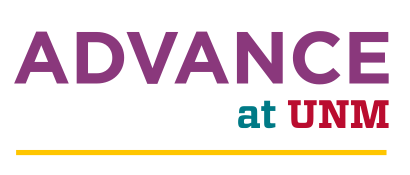Faculty Fanfare: Stephanie Beene

UNM Associate Professor Stephanie Beene and a colleague at Oakland University have published a new paper exploring conspiracy theories presented by library patrons.
The work, “Library workers on the front lines of conspiracy theories in the US: one nationwide survey,” was written by Beene, an Art, Architecture, and Planning Librarian in the College of University Libraries and Learning Sciences, and co-researcher Katie Greer.
The article, which took two years to publish due to COVID-related setbacks and included six reviews, reports on a qualitative nationwide study conducted in 2021 of patrons who espouse conspiracy theories when interacting with librarians.
The work is the researchers’ second article on the topic and is the catalyst for an upcoming book.
Beene said that as she saw conspiracy theories gain in popularity, she realized not many librarians were researching the problem.
“When Katie (Greer) and I started this work, we were really surprised to find that not very many librarians were engaged in researching the problem of conspiracy theories, even though there were many who had been researching and publishing on fake news and misinformation, especially since the Trump presidency,” she said.
“Psychologists, historians, political scientists, journalists, and other scholars have been engaged for decades in a conversation about conspiracy theories, conspiracy ideation, and their social, political, and cultural ramifications,” she said.
However, major historical events led Beene to take action.
“Several things came together to capture the attention of library workers that makes it so we can’t look away: The Trump presidency, the murders of unarmed Black men and women and the rise of the #BlackLivesMatter movement, the rise and proliferation of the superconspiracy Qanon, the COVID-19 pandemic, an unprecedented rise and coordinated effort in book banning nationwide, and backsliding as a nation in humanitarian protections of historically marginalized populations, including people identifying as LGBTQIA+.”
Because libraries are key fixtures in many communities, librarians are on the front lines of an “information disorder.”
“As library workers on the front lines, we are often havens and hubs in our communities — places where patrons come for information on voting, filling out tax forms, up-to-date information on vaccinations, Internet use, and yes — books. Unfortunately, our research has unearthed a new form of information disorder that is being encountered by library workers, exacerbated by the COVID-19 pandemic, political polarization, and a splintered social media information ecosystem; conspiracy ideation is one effect of this information disorder and we’re seeing it in libraries nationwide,” she said.
Their first article on this topic, “A Call to Action for Librarians: Countering conspiracy theories in the age of QAnon,” was published just before the Jan, 6, 2021, capitol insurrection.
Beene and Greer were invited plenary speakers at 2022’s international Qualitative and Quantitative Methods in Librarianship conference in Athens, Greece and went on to become Awardees of the Information Literacy Institute at Purdue University. The $4,000 prize for their project “Librarians on the Front Lines: Countering Conspiracy Theories Together,” came with an invitation to publish the article “Do your own research: Conspiracies in the social web,” in a special issue of the journal Frontiers in Communications called “Paranoid Publics: Conspiracy Theories and the Public Sphere,” which is forthcoming in 2024.
Also in 2024, the pair plan to submit a manuscript for a book titled “Using Metaliteracy and Other Frameworks to Dismantle Conspiracy Theories: Strategies for Librarians in an Information Disordered World.” Among other things, the book aims to help librarians gain a better understanding of the challenges and opportunities they face in this information landscape.
According to the book’s abstract, “The information age has brought with it a wealth of opportunities, but also what scholar Matthew Hannah has termed “the information dark age,” with the rise of QAnon and other “super conspiracies. Librarians in an information-disordered society must draw on disciplines external to librarianship to shift information literacy praxis…
“This book will explore the issue of information disorder in our society, explore how conspiracy theories are shaping citizen engagement with information and reality, and weave throughout how metaliteracy, visual literacy, and information literacy can be utilized to produce a more democratic, civil discourse.”
Beene said she presented the research at a fall 2022 Vice Provost for Research Council Meeting and another UNM faculty member put forth the idea to organize a Grand Challenge around the problem of conspiracy theories. The disinformation trend involves researchers in communication and journalism, political science, history, psychology, librarians and information literacy, education, and computer science, among others.
“I thought this was a brilliant suggestion and we would welcome this sort of collaboration,” she said.
“Ideally, if we continue to research and collaborate toward a solution, librarians, educators, and really everyone, will be better prepared and have an enhanced toolkit to counter conspiracy ideation and extremism. Democracy depends on us working together toward a solution,” Beene said.
